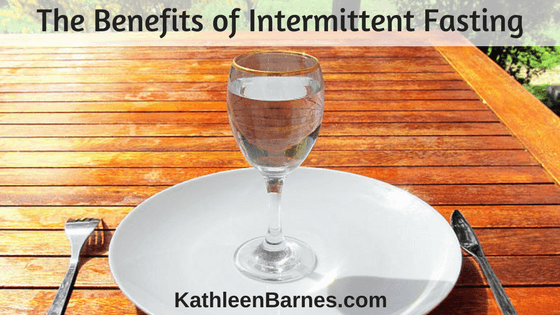This post originally appears on this website in September of 2013.
Have you ever thought of giving your body a rest from food? Have you ever considered what effects fasting days, very low calorie days or controlled eating times might have on your body?
To be honest, I hadn’t considered it, but when several friends mentioned it to me and I began to do a little research, and the concept of intermittent fasting piqued my interest.
Popular new diet plans offered by Michael Mosley in his book, The Fast Diet and several iterations of the 5:2 Diet offer a simple method of weight control and much more:
Eat normally five days a week and alternating with two non-consecutive “fast” days when you eat 500-600 calories.
Of course, you’ll lose weight if you dramatically reduce your caloric intake by eating like that. But that’s oldthink. It’s not just simple math. The caloric restriction concept may be true, but science is now confirming that intermittent fasting can go so much farther.
Dr. Joe Mercola is right about almost everything and I have decided to trust him on this one. He adds that the positive effects are increased if you concentrate all of your eating for the day into an 8-hour period, sometimes called the 8-Hour Diet, so you essentially skip breakfast, eat lunch around 11 or 12 and finish your dinner by 7 or 8.
Intermittent fasting and/or concentrated eating help shift your body from burning sugar and carbohydrates to burning fat as its primary fuel.
So what else does intermittent fasting do for you?
Long life: That’s a great one for starters. This idea began way back in 1945 with a rat study that showed that fasting one day in three increased the lifespan of male rats by 20 percent and females by 15 percent. Numerous studies have confirmed this: lean people and lean animals have longer lives.
Long-term appetite control: By normalizing levels of the hormone ghrelin, which stimulates the sensation of hunger, and another hormone, leptin, which signals the brain when you’re full, intermittent fasting helps reduce food intake and normalize metabolism.
Increased blood sugar control: Intermittent fasting has been shown to cut the incidence of diabetes in lab animals and to normalize insulin and leptin sensitivity in humans.
Improved heart health: Reduced blood pressure and improved cholesterol and triglyceride levels are among the scientifically validated effects of intermittent fasting. Fasting may even help protect the heart by raising levels of adiponectin, a protein that has several important roles in carbohydrate and fat metabolism.
Improved brain function: Intermittent fasting improves memory, improved learning ability, helps regenerate brain cells and can even improved long-term memory in people with Alzheimer’s disease and dementia.
Reduced inflammation that is an underlying cause of many chronic diseases of aging, including diabetes, heart disease and cancer.
What’s the catch?
OK—I’m sold and I imagine you are, too. These are compelling health benefits, whether or not you need weight control.
Yes, there’s a catch: This eating plan does not mean binge and starve. It doesn’t mean that you eat four leaves of lettuce one day and an entire chocolate cake the next. Sure, you might do that the first few times, but what I am hearing from those who have tried it, intermittent fasting means relatively effortless long-term revision of eating habits and your relationship with food.
I think it is encouraging that it is not a deprivation diet, so if you really, really, really want that ___________(fill in the blank), you can have it tomorrow.
But here’s what really important and what triggered my decision to begin intermittent fasting: Dr. Mercola’s statement that this is a lifestyle, not a diet. This is not something I plan to do for a month or two or six. It’s something I plan to do for a lifetime.
Mosley, the author of The Fast Diet, got rid of 19 pounds in two months, but many writers caution that it may take several weeks for the body to begin to respond, so be patient.
And there’s so much flexibility. You can fast on Monday and Thursday and be a lot looser on weekends or switch your fast day when you have a birthday party to attend.
Yes, you’ll probably be hungry on fast days, but you’d be surprised how much healthy food you can eat if you eat just four or five ounces of protein (grilled chicken is a staple in our house) and then almost unlimited amounts of salad veggies. You still have to count, but the amount is huge. Of course, if you decided that you’re going to put in 500 calories of ice cream or Snickers bars, you won’t be getting much and you’ll be even hungrier.
But remember, Scarlett, tomorrow is another day.
People who have done this eating plan also say that their cravings for sugar, simple carbohydrates and other unhealthy foods fall away after doing it for just a few days.
This is very complex stuff and I promise to re-visit it many times in the coming months. I’m always happy to hear form my readers, and I’d be very happy to hear from any of you who have engaged in this plan.








Thank you for this, both the Vitamin D, and the Intermittent Fasting information. I have a little experience with the intermittent fasting …having done it in the past, not to the same degree as you explained but eating less food after 12 noon two days a week (i.e. soup for dinner, or a salad) and it does make one feel better and the pounds do come off slowly and encouragingly.
I love your newsletters Kathleen, thank you for all you do and I look forward to reading more good stuff.
Happy, health and blessed 2014!
Sheelagh Nolan
For four weeks, I’ve been on the intermittent fasting diet as per Dr. Mercola and cut out all carbs. I get my carbs from veggies and healthy oils give me the energy that carbs would. I’ve lost 12 pounds in the last 4 weeks. I’m feeling much better, have lots more energy, low thyroid is better and the diabetes is MUCH better, too. I’m staying on this as I have about 15 pounds more to lose but do plan on this as an entire lifestyle change. I’m so glad you wrote about this, as I think it’s beneficial for alot of people, especially diabetics.